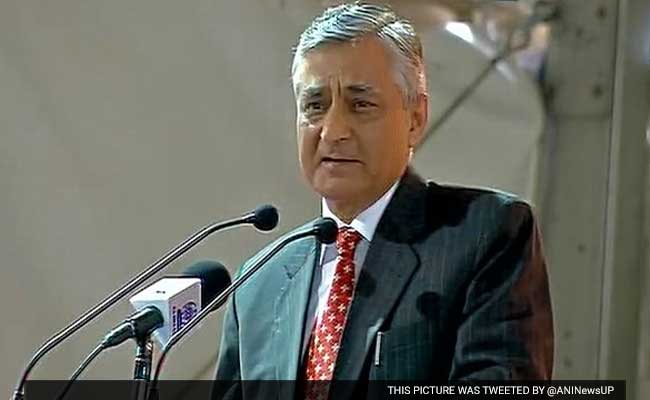High Court cannot punish for “the contempt of a superior court” CJI T S Thakur
 NEW DELHI : A day before his retirement, Chief Justice Thakur has penned a judgment that amongst other things, states unequivocally that a High Court cannot punish for “the contempt of a superior court” that is the Supreme Court of India. But that is not the only interesting aspect of today’s judgment in Vitusah Oberoi.
NEW DELHI : A day before his retirement, Chief Justice Thakur has penned a judgment that amongst other things, states unequivocally that a High Court cannot punish for “the contempt of a superior court” that is the Supreme Court of India. But that is not the only interesting aspect of today’s judgment in Vitusah Oberoi.
At the centre of the storm, is interestingly, an ex-CJI and some very grave allegations. In 2007, the english daily Mid-Day had published a cartoon, and ran three stories on the Delhi “sealing case”, a case that was being heard by the then Chief Justice of India, Justice YK Sabharwal.
The judgment notes that the,
“Substance of the publication brought to light the alleged misuse of the official residence of Justice Sabharwal who demitted office as Chief Justice of India on 13th January, 2007, by the same being shown as the registered office of three companies promoted by Justice Sabharwal’s sons.”
The second story stated that Justice Sabharwal’s son had entered into commercial development agreements, just before the “sealing” of commercial establishments in residential areas. And the cartoon in question, indicated that Justice Sabharwal’s family had benefitted from the sealing orders.
On May 21 that year, this material was placed before a bench of the Delhi High Court by public spirited lawyer RK Anand. The senior counsel, who would be convicted of contempt in 2012, alleged that these stories had the effect of lowering the image of the judiciary. The Delhi High Court agreed, and show-cause notices for contempt.
Mid-Day’s editor, city editor, the publisher, and the cartoonist in question filed their replies, arguing that the articles were only intended to “bring to light such impropriety by Mr. YK Sabharwal”, and not malign the judiciary. They also argued that all the facts stated in the stories were “supported by unimpeachable documents”
Nonetheless, On September 11, Justices RS Sodhi and BN Chaturvedi found the three journalists and the publisher of Mid-Day guilty of contempt of court, and asked them to be present in court for hearing on the quantum of sentence.
This decision of the High Court was assailed before the Supreme Court. Veteran senior counsel Shanti Bhushan and advocate Prashant Bhushan, who appeared for the journalists contended that the High Court could, under Article 215 of the Constitution, initiate proceedings and punish for its own contempt, but it could not do so for the contempt of the Supreme Court.
It was urged that even under Section 10 of the Contempt of Courts Act, 1971, the High Court could punish only for its own contempt or the contempt of a Court subordinate to it.
Agreeing with this line of argument, the Supreme Court held that “the Supreme Court was and is competent to punish for contempt of itself.”The Division Bench of CJI Thakur and Justice AM Khanwilkar ruled that,
“There is nothing in the Contempt of Courts Act, 1971 or in Article 215 of the Constitution which can be said to empower the High Court to initiate proceedings suo-motu or otherwise for the contempt of a superior Court like the Supreme Court of India.”
The Bench also also went on to add,

